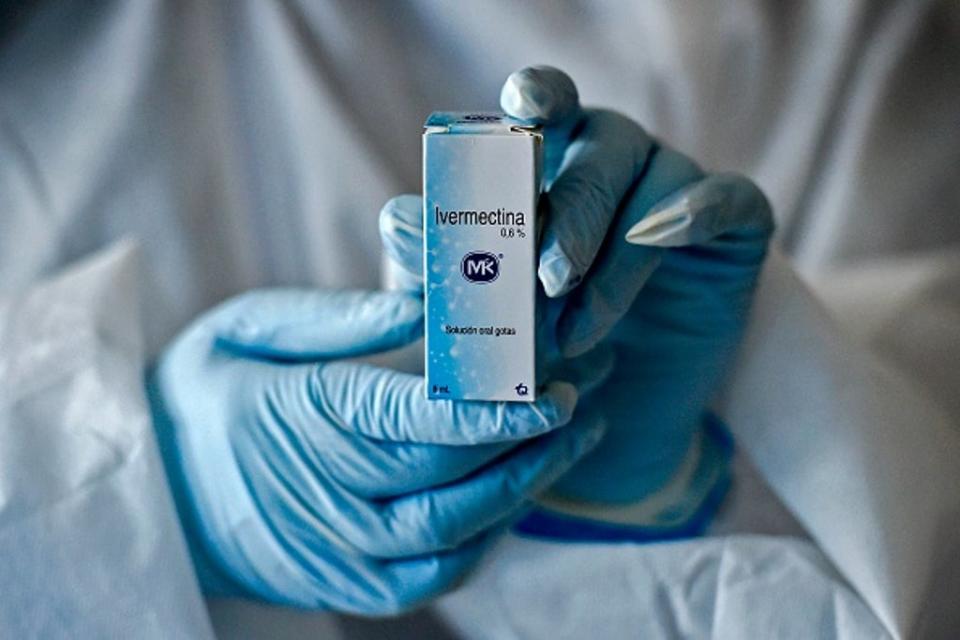What is ivermectin, the drug Joe Rogan took after testing positive for Covid-19?

Doctors and virologists have warned against the use of certain drugs, including ivermectin, for treating Covid-19, after US comedian, podcaster and MMA (Mixed Martial Arts) commentator Joe Rogan revealed that he had self-administered them following his coronavirus diagnosis.
The 54-year-old host of Spotify’s most popular podcast The Joe Rogan Experience, revealed that he had tested positive for Covid last weekend, resulting in the cancellation of an upcoming tour date.
Rogan, who told his estimated 11 million followers in April that young, healthy people did not need to get the vaccine, prompting a wave of condemnation, confirmed in an Instagram video on Wednesday that he had contracted the infection.
“I got back from the road Saturday night feeling very weary,” he said.
“I had a headache, and I just felt just run down. Just to be cautious, I separated from my family, slept in a different part of the house and throughout the night I got fevers and sweats and I knew what was going on.”
The influential host who admitted he is “not an authority on health” went on to say that he had “immediately thrown the kitchen sink” at the virus. Among the medications he claimed to have used was ivermectin, a drug used to deworm animals and treat parasitic infections such as river blindness, spread by flies.
But what is ivermectin? Here’s everything you need to know.
What is ivermectin and is it safe?

Ivermectin is a drug sometimes given to humans in small doses for scabies and other parasites, such as river blindness. It is more commonly used to treat worms in animals.
According to the US Food and Drug Administration (FDA), side effects can include “nausea, vomiting, diarrhea, hypotension (low blood pressure), allergic reactions (itching and hives), dizziness, ataxia (problems with balance), seizures, coma and even death.”
The FDA clearly states that “while there are approved uses for ivermectin in people and animals, it is not approved for the prevention or treatment of Covid-19.”
Elsewhere, the World Health Organisation (WHO) recommends “not to use ivermectin in patients with Covid-19.”
What has stoked the interest in ivermectin?
A 2020 peer-reviewed Australian study found that ivermectin could kill Covid in a lab, prompting some commentators to promote the drug as a solution for the infection in humans, despite the researchers warning against this and globally trusted health organisations strongly advising against its use for such a purpose.
Dr Peter English, retired Consultant in Communicable Disease Control and Immediate past Chair of the BMA Public Health Medicine Committee explains that this study was an ‘in vitro’ study, and can only tell us what might happen in a laboratory.
He tells The Independent: “In vitro findings frequently fail to translate into clinical effects; and studies have failed to find any benefit for this (potentially harmful) drug in real patients.”
Despite this, there has been a sharp rise in the use of the drug to ‘treat’ the virus, prompting an increase in calls to health professionals with reports of overdoses and side effects.
Dr Shawn Varney, a toxicologist and medical director for the South Texas Poison Center, told the New York Times: “Everyone wants some cure for Covid because it’s such a devastating illness. I plead with people to stop using ivermectin and get the vaccine because it’s the best protection we have at this point. Everything else is risk after risk.”
And in response to the drug’s popularity, the FDA tweeted the following message to its followers in August: “You are not a horse. You are not a cow. Seriously, y’all. Stop it.”
You are not a horse. You are not a cow. Seriously, y'all. Stop it. https://t.co/TWb75xYEY4
— U.S. FDA (@US_FDA) August 21, 2021
Read More
What do I do if someone in my child’s class tests positive for Covid?
My sister’s new boyfriend is always around and it’s too much
‘She called me a sheep’: When family and friends fall out over the Covid vaccine
World Alzheimer’s Month: How best to support a family member diagnosed with the disease
How to recover quickly from a hangover after a festival
Cristiano Ronaldo signs for Manchester United: How the 36-year-old stays on top form

 Yahoo News
Yahoo News 
